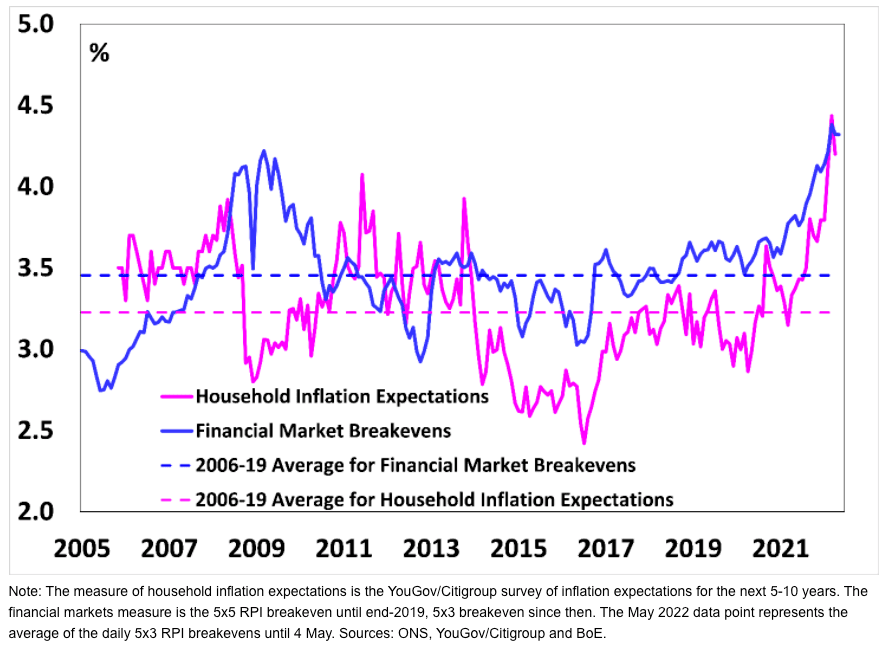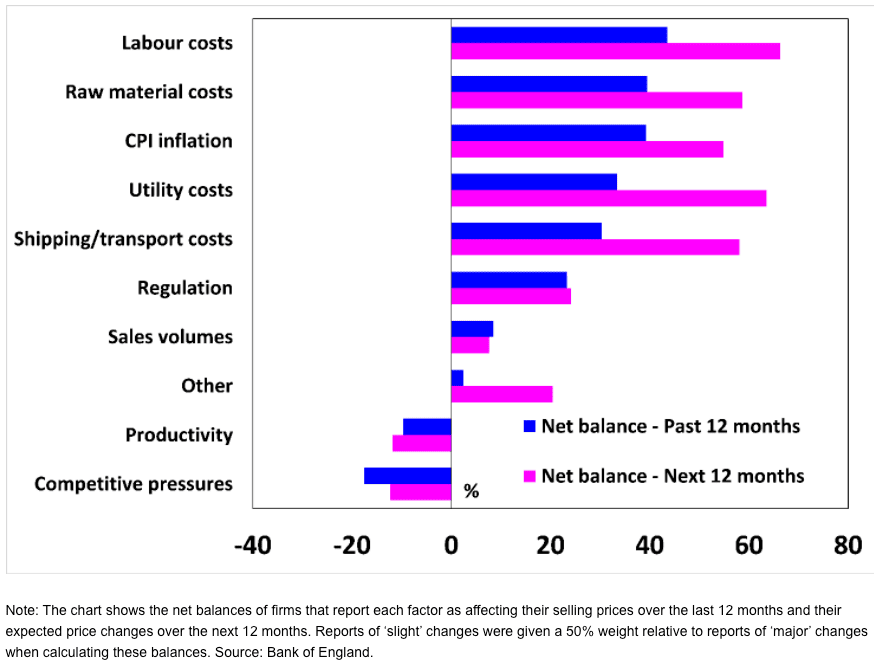Saunders Makes the Case for Bold Interest Rate Hikes
- Written by: Gary Howes

Image © Bank of England
Michael Saunders has once again reiterated the case for a bold approach to raising interest rates in an effort to stave off surging inflation.
Saunders, who sits on the Bank of England's Monetary Policy Committee (MPC), voted for a 50 basis point rate hike last week.
But a vote for a smaller 25 basis point hike carried the day as other members opted for a more cautious approach to raising the cost of borrowing.
In a speech released on May 09 Saunders says he believes the risks of inflation becoming embedded in the psyche of businesses and consumers continue to grow, meaning the UK could face a period of protracted inflation.
"If monetary policy does not adequately lean against inflation pressures, then we may see a prolonged period of above-target inflation," said Saunders in a speech to the Resolution Foundation.
Above: Measures of Longer-Term Inflation Expectations, Bank of England.
The speech suggests Saunders will continue to advocate for rate rises until such a time as data shows domestically-generated inflation expectations are in retreat.
Saunders is concerned inflation could sit materially above the 2.0% target for a prolonged period were the Bank to be too cautious in tackling inflation expectations by acting firmly now.
Inflation would then potentially become stubborn and require rates to rise for longer and to a higher level than might have been the case in the event of a forceful 'front loading' of rate hikes.
This could in turn prove detrimental for economic growth.
"I put considerable weight on risks that, unless checked by monetary policy, domestic capacity and inflation pressures would probably be greater and more persistent than the central forecast in the recent MPR. As a result, my preference has been to move relatively quickly to a more neutral monetary policy stance," says Saunders.
Saunders was joined by Catherine Mann and Jonathan Haskel in voting to raise rates by 50 basis points at the May MPC meeting.
He says Bank of England data shows firms are on balance looking to raise prices over coming months as they consider a number of cost pressures, amongst the most prominent are labour costs.
This suggests the UK is facing increasing domestic inflationary pressures, of which the Bank can remedy via higher rates.
Above: "Agents' Survey of Factors Affecting Firms’ Selling Prices (Net Balances)". The cost of labour is driving up the cost of doing business in the UK.
But economic projections contained in the Bank's Monetary Policy Report showed expectations for the economy to slow materially over coming months as consumers retreated in the face of higher inflation.
The Bank signalled inflation will come down naturally as the economy slows and therefore only some modest further monetary tightening (rate hikes) was required.
This prompted markets to cut back rate hike expectations for 2022, which in turn weighed on the Pound.
But Saunders says the Bank's projections underestimate the potential pervasiveness of inflation.
"My view is that, conditioned on the same interest rate path, risks would be tilted on the side of greater and more persistent domestic capacity and inflation forces than the MPR forecast," he says.
Saunders didn't commit to voting for a 50 basis point hike again in June, saying he would only commit to such a vote having assessed incoming data.
But with little sign of an easing in inflation nor an unwinding of the 'tightness' in the labour markets one of the Bank's most prominent 'hawks' might find himself once again voting for a big hike.





